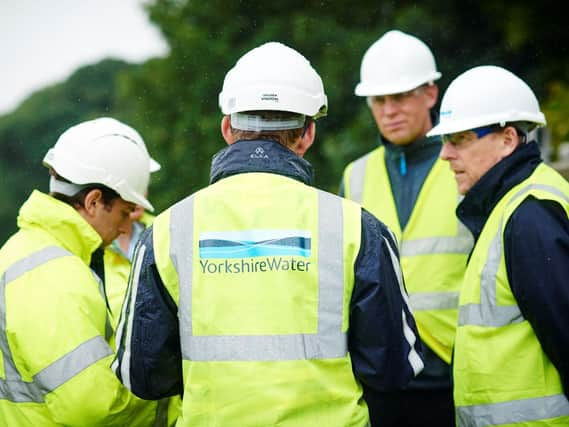Artificial intelligence aims to reduce water leakage in Calderdale


Yorkshire Water currently has 40,000 ‘acoustic loggers’ deployed on its distribution network – the loggers listen to water pipes in order to alert the company of any leaks.
If a leak is suspected, the logger sends an alarm to the control room, where an analyst checks it and asks an inspector to go to site to investigate and raise a repair.
Advertisement
Hide AdAdvertisement
Hide AdHowever, sometimes, the alarms from loggers are found to be false positives, where background noise has been mistaken for a leak.
The trial of two new AI systems, delivered in collaboration with Siemens and Artesia Consulting, has shown the potential to reduce the number of false alarms by up to 60% and can simultaneously identify more true leaks.
Sam Bright, innovation project manager at Yorkshire Water, said: “Reducing leakage is a key priority for us and we know that adopting improvements in technology, such as this, are key to hitting our ambitious leakage targets.
“So far, we’ve seen some promising results from Siemens and Artesia Consulting – the project, if successful, will help us to reduce leakage by allowing us to target our activities more effectively.”
Advertisement
Hide AdAdvertisement
Hide AdUsing advanced machine learning techniques and analysis of audio recordings, the project looks to improve the alarm process by teaching the AI engine to distinguish between a leak and background noise.
Adam Cartwright, head of IoT application delivery at Siemens, said: “Acoustic data is complex and challenging. Only by combining Siemens data science experts from multiple sectors, like oil and gas, with Yorkshire Water’s deep knowledge of water networks could we train such a powerful AI.”
Sarah Rogerson, data strategist at Artesia, commented: “At Artesia, we love tricky problems. This opportunity challenged both our data science and industry experts quite nicely! We were pleased to be able to improve the accuracy and sensitivity of this technology."